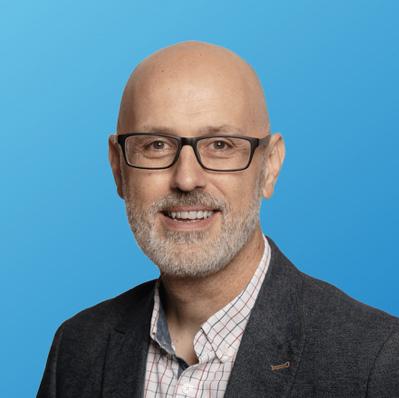When I reflect on where I am today, it’s so far from where I started that I could have never, in reality, have predicted the journey I’ve been on in my career. I’ve had paper rounds, jobs in a local nursing home, tended bar on a ferry (even though I get sea-sick) and also worked in night clubs, all before I fell into sales.
What did I want to be when I was a child? Aged 8? A priest. Aged 13? Tom Cruise in Top Gun (well a fighter pilot in the RAF but still). Aged 17? A filmmaker. Aged 30? Rich. Today? Good question.
As we bring new people into our teams, help them to grow and develop and then, proudly see them head off to new adventures, it’s worth thinking about the advice I wish I’d been given when I was 16 and leaving school.
Here are a few things I’ve learned along the way.
Love what you do
There are a million careers out there and even more jobs. But if you really LOVE what you do, then that passion will lead to success and happiness. The famous quote from musician Marc Anthony, “If you love what you do, you will never have to work a day in your life,” is so true.
Equally love WHO you do it with. You spend more time with colleagues than partners or friends so make sure they are the kind of people you want to be around.
Interviews go two ways
Remember you are interviewing them as much as they are interviewing you. Ask questions about the culture of the business, dig into the opportunity and really make sure they are as worthy of you as you are of them. I was once rejected for a role because I asked questions at the interview stage. Because I asked questions! If the interview feels like a one-way street, this could set the tone for the potential future role.
Find your ‘why’
I find myself getting frustrated when a sales person says they are embarrassed to admit to being motivated by money. Why? You like sales, you like the fact it earns you money and, for you, money is what gets you out if bed every day.
Own the fact that this motivates you. When you truly own it, it with help define your success. Likewise, if your WHY is to help people, to become MD or Global CEO or just to be happy in what you do, own that. When you are carving out your career, it all becomes much easier if you know why you are doing it.
Be willing to pivot
I started as a carer. I worked on a ferry. I ended up in sales – banking, recruitment and now technology. It’s fair to say that I’ve pivoted a few times on this journey. That’s not a bad thing – sometimes those transferable skills make you stand out. A previous leader I worked for didn’t employee me because I’d sold SaaS products or dealt with accountants before. She hired me because I’d run a business, I could sell, and I loved tech. I had all the skills necessary to be great. Equally I ran a film production company for eight years. It made enough money to get by but when it was clear that’s all it would ever do, I sold it and walked away. I pivoted and, for me at least, it was the best move I made.
Don’t be afraid of making mistakes
We all make mistakes. I started a job in a new company with all the best intentions but three months in, I realised the role wasn’t for me. The company was great, the people were fantastic but it was the right job. So, I moved on. I don’t hide the fact that I made a wrong call. In fact, I left in such a way that the team and I still speak on a regular basis and catch up at events.
We are all human. Very few people get it right from the start, every time, all the time. Those colleagues understood this and that’s why we still keep in touch and get along.
Education is important but it’s also a choice
I tell my daughter that while university is great, it’s not the be all and end all. I was the first (and to date) only Hobden in my family to get to university. I studied media. Would I do it again if I had the choice? Probably not. I would have worked as a runner or assistant in film and worked my way up in the industry. In fact, my brother-in-law did exactly that and is running units on film shoots for major Hollywood blockbusters.
That’s not to say this isn’t the right journey for some – it is. In a past role, we employed mostly grads and they were always adding new energy and ideas. However, if you don’t get the grades or you are one of those people in life that does not flourish in an educational establishment, it doesn’t mean you won’t or can’t be successful. It just means you need to follow a different path.
Your difference is your strength
I’m dyslexic. It doesn’t affect me hugely at work, but it does make things harder at times (more writing than reading). For years I hid this – laughing off mistakes when I was often deeply embarrassed. Now I talk about this openly and even have it on my LinkedIn profile! Why? Workplaces are now embracing neurodiversity, as they should, and are even actively looking to hire those who ‘see things in a different way.’ What I always thought was a weakness now feels like a strength.
There are hundreds of additional tips I could share, but perhaps the most important is to canvass the opinions of others and find what best resonates for you. Speak to people, take account of the numerous articles out there – yes, such as this one – but then sift the perspectives you hear to ensure you not only find a great role, perhaps even a great career, but also to help you to find the position that enables you to truly love what you do.
Share via:









































